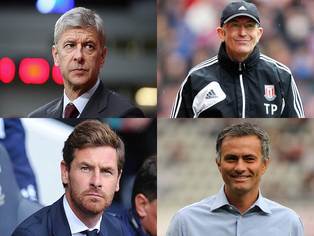
In the recent coverage of the appointment of Roy Keane as assistant manager to Martin O'Neill for Ireland there has been a lot of reference to Keane's abilities as a footballer and as a manager. Probably the greatest footballer we have ever produced has not had a stellar managerial career to date (though not as terrible as Alex Ferguson might want us to believe). The stereotype of course is that great players are frustrated in management by players who are unable to do the things they could do as players. Also, the argument is made that great players are less interested in the mundane detail of football management.
There is also a sense that there is an increase in the prevalence of managers who have never played at the high level at which they manage. There may be an element of bias in this as more recent cases such as Villas-Boas and Mourinho are held out as a new type of manager.
I've looked at the managers of Premier League clubs at 10 year intervals over the 21 seasons since it began. These are the managers that were in place at the end of the 1992/3, 2002/3 and 2012/3 seasons. The table below shows the number of clubs in the Premier League in each of these seasons. The other columns show the number of clubs whose manager played at least 50 games in any top football division, the number of clubs whose managers earned at least one international cap and at least 20 international caps.
This would seem to suggest that there is a tendency to see more managers without high-level playing experience. However, it's noticeable that that number of managers with 20 or more caps is relatively stable suggesting that where there are managers that have played at a high level the survivors are the ones that have achieved quite a lot as a player.

 RSS Feed
RSS Feed